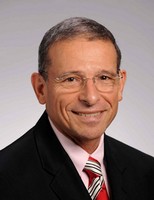Transcripts
 Erik: Joining me now is Jesse Felder from “The Felder Report,” which, without a doubt, is one of the most popular subscription newsletters in the marketplace.
Erik: Joining me now is Jesse Felder from “The Felder Report,” which, without a doubt, is one of the most popular subscription newsletters in the marketplace.
Jesse, it’s been way too long. It’s great to get you back on the program.
I want to start with the market because you have been a voice of reason for years now, saying, hey guys, it’s great that the stock market is making money for people. But it’s 10 years straight up. It’s too much, too far, too fast.
The question on my mind now, Jesse, obviously the COVID-19 situation is the proximal catalyst that’s caused the recent selling. But is this the extent of what’s going on? Or is it more likely the case that COVID-19 is the catalyst that was needed to bring about a change in market direction that might have been overdue to start with?
 Erik: Joining me now is Fasanara Capital founder, Francesco Filia. And I always enjoy interviewing Francesco because, not only does he always send us a terrific slide deck, but it’s usually a big slide deck. So we won’t be able to get to all of the slides in this deck. I do strongly encourage our listeners to peruse the entire deck because it has some really fantastic content in it.
Erik: Joining me now is Fasanara Capital founder, Francesco Filia. And I always enjoy interviewing Francesco because, not only does he always send us a terrific slide deck, but it’s usually a big slide deck. So we won’t be able to get to all of the slides in this deck. I do strongly encourage our listeners to peruse the entire deck because it has some really fantastic content in it.
You’ll find the download link in your Research Roundup email. If you don’t have a Research Roundup email, that means you haven’t yet registered a free account at macrovoices.com.
Just go to our home page at macrovoices.com, look for the red button that says Looking for the Downloads? right next to Francesco’s picture on our home page.
Francesco, we can’t get into every single slide here, so I want to start maybe with Page 6, I believe, where you’re looking at the 50-year swap rate. Tell us what’s going on here and fit it in to the big picture of what you see in the market.
 Erik: Joining me now is Ralph Delguidice, global macro strategist for Pavilion Global Markets. Ralph put together a terrific slide deck for today’s interview. You’ll find the download link in your Research Roundup email.
Erik: Joining me now is Ralph Delguidice, global macro strategist for Pavilion Global Markets. Ralph put together a terrific slide deck for today’s interview. You’ll find the download link in your Research Roundup email.
If you don’t have a Research Roundup email, that means you’re not yet registered. In that case, just go to our home page at macrovoices.com, look for the red button that says Looking for the Downloads? right next to Ralph’s picture on our home page.
Ralph, it’s great to have you on the show. I know that you are a regular listener. And I want to take advantage of that, because I know you’ve been listening to my interviews with Jeff Snider.
Something Jeff has said that just really threw me for a loop when he said it recently is he said, you know, really, we have to just accept that US Treasury bonds are not really an investment anymore. Big institutions need to have them as a balance sheet management tool, but they don’t make any sense as an investment.
And I thought about that after the fact. I thought, holy cow, what are all of the knock-on implications of the United States Treasury bond? You know, the full faith and backing of the United States government (cue the patriotic music), most safest, reliable investment on earth, and it’s not even an investment in Jeff’s eyes.
How did we get here? What does Jeff mean by that? And what’s the story of regulatory changes that have gotten us to this point?
 Erik: Joining me now is petroleum geologist Art Berman.
Erik: Joining me now is petroleum geologist Art Berman.
Regular listeners already know it wouldn’t be an Art Berman interview without an Art Berman slide deck. You’ll find the download link for the Art Berman slide deck in your Research Roundup email. If you don’t have a Research Roundup email, that means you’re not yet registered at macrovoices.com. So just go to our home page at macrovoices.com, and look for the red button that says Looking for the Download? next to Art’s picture.
Art, it’s great to get you back.
Before we dive into your excellent slide deck, I want to start with the big picture.
First of all, I want to congratulate you. When we last had you on the show just before Christmas, you were getting very, very sharply criticized for an article you had just published called “The Oil Rally Won’t Last.”
And at that point we’re at $61. A whole bunch of people were saying, hey, we’re headed to $90. This is it, this is the big one.

 Erik: Joining me now is our first feature interview guest this week, Julian Brigden, founder of Macro Intelligence 2 Partners.
Erik: Joining me now is our first feature interview guest this week, Julian Brigden, founder of Macro Intelligence 2 Partners.
And of course Julian is famous for his terrific macro slide decks. He has prepared another of those for today’s interview. We strongly encourage you to download that handout from the Research Roundup email, where you can find the link.
If you don’t have a Research Roundup email, which means you’re not yet registered at MacroVoices, just go to our home page at macrovoices.com, look for the red button that says Looking for the Downloads? next to Julian’s picture.
Julian, it’s great to have you back. Before we dive into your slide deck, it’s an FOMC week. Let’s talk about the FOMC statement and market reaction to it.
What’s your take?
MACRO VOICES is presented for informational and entertainment purposes only. The information presented in MACRO VOICES should NOT be construed as investment advice. Always consult a licensed investment professional before making important investment decisions. The opinions expressed on MACRO VOICES are those of the participants. MACRO VOICES, its producers, and hosts Erik Townsend and Patrick Ceresna shall NOT be liable for losses resulting from investment decisions based on information or viewpoints presented on MACRO VOICES.
